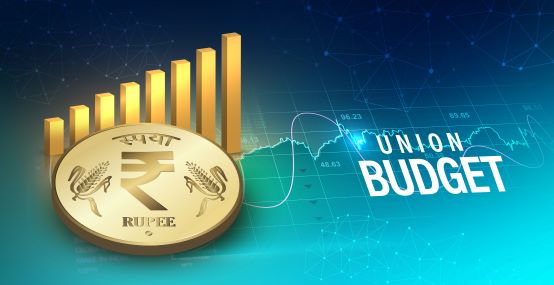What is the Budget? Union Budget for Beginners

Introduction
Everyone requires a budget to take their financial planning forward. It contains an estimation of revenue and expenses during a specified period in the future. A budget can be made for an individual, a group of people, small business firms, large corporate entities, and the Government.
In this article, we will discuss the Union Budget of India, its components, and various other details about it. Let's get started.
What is Union Budget?
Also known as the annual financial statement, the Union Budget of India is the summary of the estimated revenues and expenditure of the Government for the applicable financial year. It keeps the account of the Government's finances for a given fiscal year, i.e., from 1st April to 31st March. The Government's roadmap for fund collection and allocation during a given financial year.
That is similar to the monthly household budgets we prepare for our income and expenses. The Union Budget is the statement of the estimated receipts and expenditure of the Government for that particular year.
Who presents the Union Budget and when?
The Finance Minister of India presents the Union Budget in Parliament on the first day of February every year. For example, the current Finance Minister of India – Nirmala Sitharaman – would be presenting the Union Budget for the financial year 2022-23 on 1st February 2022. The Budget speech would commence at around 11 AM the morning.
Before 2017, the Governments used to present the Union Budget on the last working day of February. The tradition was changed by the then Finance Minister of India, Mr Arun Jaitley. The Railway Budget of India – which was presented separately till 2016 – was also merged with the Union Budget in the same year.
The two components of the Budget
The Union Budget of India is classified into two components – the Revenue Budget and the Capital Budget. The revenue budget includes the revenue receipts and expenses incurred by the Government for day-to-day functioning and subsidies. These revenues could be from taxes and non-taxable sources.
On the other hand, the capital budget includes the capital receipts and payments of the Government. Loans from the public, foreign Governments, and the Reserve Bank of India (RBI) are capital revenues for the Government. The capital expenditure by the Government includes the money spent on buildings, infrastructure, schools, hospitals, etc.
How does the Union Budget impact our economy?
As you know, the Union Budget acts as a blueprint for Government's revenues and expenses during a given financial year. It aims at reducing the fiscal deficit and economic inequality within the country with adequate planning and dedicated policies. Every Government tries to ensure the proper allocation of finances for various welfare activities for the country's development.
The Union Budget identifies various revenue sources for the Government and their structures. For example, income tax, GST, RBI loans, foreign loans, etc. It also provides guidelines for industries and citizens to become a part of India's growth strategy. In a way, the Union Budget helps shape up the economy and the country's economic reforms.
What is an interim budget?
When an entire budget cannot be presented in the Parliament, the Government presents an interim budget. This usually happens when the elections are due and hence, the full budget can be announced only after the formation of the new Government.
An interim budget uually doesn’t offer any fresh proposal on direct or indirect taxes.
To conclude
The presentation of the Union Budget is a crucial annual exercise by the Government. Any changes or proposals made through the Budget not only affect the country's overall economic structure but also impacts the equity markets in the short term.
For common people, it means a lot as it dictates the increase or decrease in the prices of daily commodities which can affect their personal budget.
Disclaimer
ICICI Securities Ltd. ( I-Sec). Registered office of I-Sec is at ICICI Securities Ltd. - ICICI Venture House, Appasaheb Marathe Marg, Prabhadevi, Mumbai - 400 025, India, Tel No : 022 - 6807 7100. The contents herein above shall not be considered as an invitation or persuasion to trade or invest. I-Sec and affiliates accept no liabilities for any loss or damage of any kind arising out of any actions taken in reliance thereon. The contents herein above are solely for informational purpose and may not be used or considered as an offer document or solicitation of offer to buy or sell or subscribe for securities or other financial instruments or any other product. Investments in securities market are subject to market risks, read all the related documents carefully before investing. The contents herein mentioned are solely for informational and educational purpose.
Please Enter Email
Thank you.
Related content

Articles - Personal Finance
What is PM Gati Shakti Yojana
Hon'ble Finance Minister Nirmala Sitharaman unveiled three major economic railway corridors in the interim budget of 2024 for the PM Gati Shakti Yojana. Explore detailed information about PM Gati Shakti Yojana.

Articles - Personal Finance
Analysis of Interim Budget 2024
Get to knwo about the impact of interim budget 2024 and a detailed analysis in this article.

Articles - Personal Finance
What Is a Surplus Budget
Learn about surplus budget and how a budget surplus impacts the economony.

Articles - Personal Finance
What is a Budget Deficit
Find out the importance of budget deficit. Cause of budget deficit and What is the relationship between budget deficit and stock markets

Articles - Personal Finance
Union Budget 2024 – Trivia Part 2
The Union budget 2024 presentation is just around the corner. Let us look at some trivia regarding the Union budgets from the past

Articles - Personal Finance
What is Union Budget and Why it so Important
Learn about the what is the Union Budget in this article for a comprehensive information of its importance.

Articles - Personal Finance
Union Budget: Key Details & Importance
As we come closer to February 1, the chatter around the expectations over Union Budget increases. From young college students looking to start their careers and small business owners to leading economists and industrialists, almost every Indian citizen keeps a tab on the Budget announcement. Let us discuss what is Union Budget and its importance for the economy.

Articles - Personal Finance
Impact of the Budget 2024 on Share Markets
The Union Budget 2024 got quite a cheer from the share market as major indices ended on a positive note. The NIFTY 50 and the Sensex benchmark indices gained during the Budget speech and finished green.

Articles - Personal Finance
What to Expect From Budget 2022 for Individuals and Salaried People
Over the last two years, individuals, especially salaried people, have taken quite a hit because of the pandemic. Work from home has not only increased expenses such as electricity and WiFi bills but has also put a strain on take-home salary. Naturally, people hope that the government will step in and ease some of these troubles through their Union Budget announcements.

Articles - Personal Finance
What is the impact of the Union Budget on the Indian Stock Markets
Indian stock markets are dynamic prone to ups and downs depending on a host of factors. Every year, one major event that impacts the equities and bond markets is the announcement of the Union Budget.

Articles - Personal Finance
History of the Union Budget in India
The ritual of presenting the Indian Budget is more than two centuries old, dating back to colonial times. India's first-ever Budget was presented by James Wilson in 1860, a Scottish economist and politician.

Articles - Personal Finance
10 Taxes Affected by Budget
Taxes are the most crucial and most significant source of revenue for the Government. The Government uses the revenues generated from taxes to provide basic facilities to its citizens and the nation's overall development. For example, construction of roads, buildings, infrastructure, public healthcare facilities, providing various subsidies, etc.

Articles - Personal Finance
What is Populist Budget
A budget typically meant to please people is known as a populist budget. It spends more on lucrative schemes that can increase the Government's fiscal deficit. Such a budget doesn't have any enduring positive impact on the country's economy.

Articles - Personal Finance
What are the Components of Union Budget
The Union Budget of India has two main components, each with two sub-components. To know more in detail, visit the link.

Articles - Personal Finance
Types of Budget in India
Deep dive into the three different types of government budgets and their impact on the economy.

 Top Mutual Funds
Top Mutual Funds







COMMENT (0)